This piece comes to us from the Wildlife Conservation Society (WCS). To honor Asian and Pacific Islander Heritage Month, WCS and Nature are sharing stories of nature and conservation.
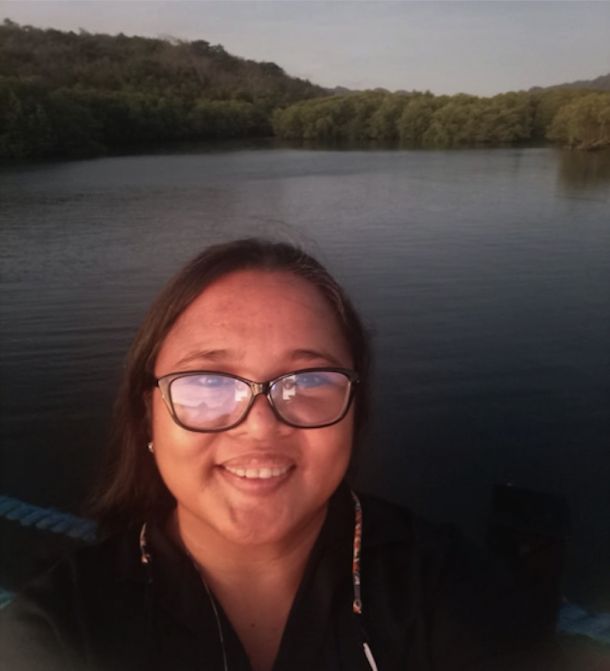
Huge win for the mangroves (behind Karen) in Coron Palawan (a future World Heritage Site), after the revocation of the reclamation project in the Bay. Photo credit: ©KPGatus.
Ok ready! Snell the hook on the rod, swing a little, wait and snatch, and there goes tabugok (octopus), my grandfather’s favorite animal to catch. After ten more rounds of this catch on a fine afternoon, my Tatay Kadong—as we fondly called him—headed home happily to my grandmother, Mama Monya, who would prepare a sumptuous dinner for all of us out from his day’s catch.
Yes, the octopus without a doubt (as others will claim) is one of the non-legendary hardest animals to catch. But I remember Tatay Kadong catching them effortlessly back then when I spent summer days with my grandparents as a child in our small hometown in Cebu. It was a remarkable sight. I would watch him catch them with awe. Must have been the same technique and tradition that his ancestors used. Of course, I enjoyed tagging along, helping him search in-between rocks for the slightest flick of a tentacle.
I inherited my love for the seas from my grandfather. And meeting a friend of my mom’s who worked on a research vessel to study the ocean sealed my interest in taking up marine biology in college. The school was interesting indeed and fun. Little did I know then that the work to follow would become my life-important mission.
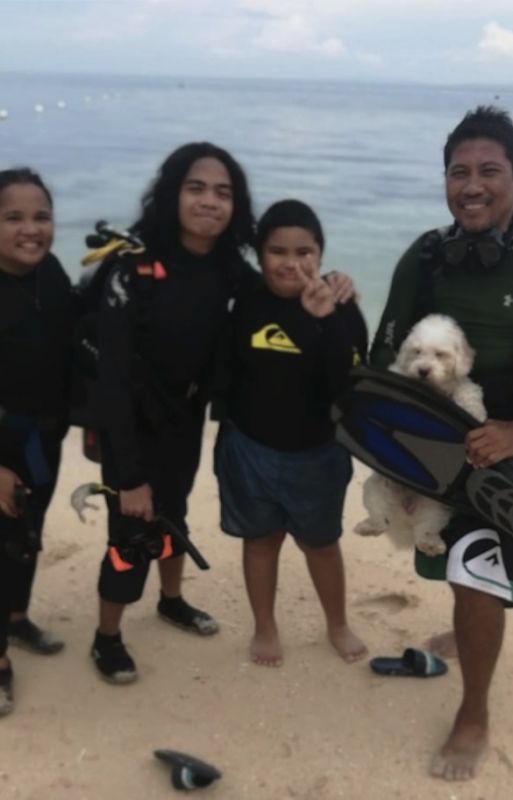
With my family: Ocean (in dive suit, beside me), Forest (2nd from right) and Joey (also a marine biologist). Photo credit: ©KPGatus.
I learned early on that island nations like my country, the Philippines, will be most vulnerable to the impacts of climate change. My early work with NGOs and the government under the Senate Oversight Committee on Climate Change exposed me to the now-ever-obvious realities of how the climate crisis disproportionately affected the most marginalized groups—especially those in the fishing sector, which was comprised mostly of small-scale fishers.
What inspires me, however, is that rather than acting as victims, many of the fisherfolks in the country are beginning to take charge and becoming effective actors of change in response to the shifting environmental realities. This is especially when they are engaged in the process and involved in the decision-making. They have enormous expertise in managing and protecting the seas, which their lives and families rely upon so highly.
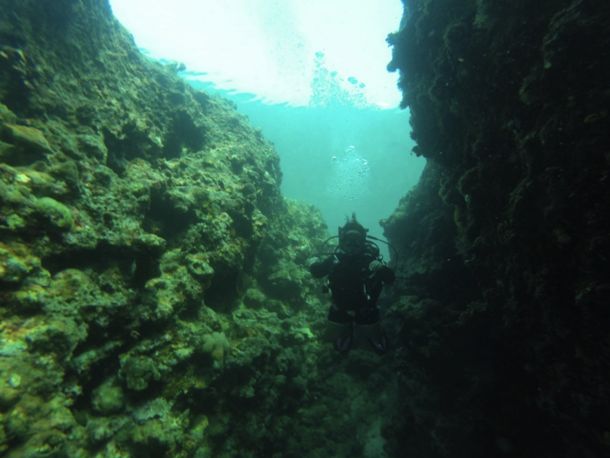
All in a day dive for a coral assessment. Photo credit: ©KPGatus.
Being with WCS Philippines, as the Philippine Marine Science and Monitoring officer, connects me to exciting work on the island province of Siquijor through a collaborative effort called the Seas the Future Project in partnership with the Coastal Conservation and Education Foundation (CCEF).
The Seas the Future project seeks to drive fisheries improvement, restore the health of the coastal waters, and leverage social and financial capacity improvement. I believe adopting the triple impact approach (that measures social, environmental, and economic characteristics of a fishery) will bring success and lasting improvements that will help all fisheries stakeholders on the island—as well as help with wider fisheries management across the Bohol Sea.
As the Wildlife Conservation Society’s newest country program here in the Philippines, we conscientiously take the role of helping plug gaps where we can to help small-scale fishers in their co-management strategies, facilitate science-policy dialogue, and help achieve agreement on developing management plans and ensuring they are carried out. The goal is to be able to scale this approach across larger fisheries management areas.
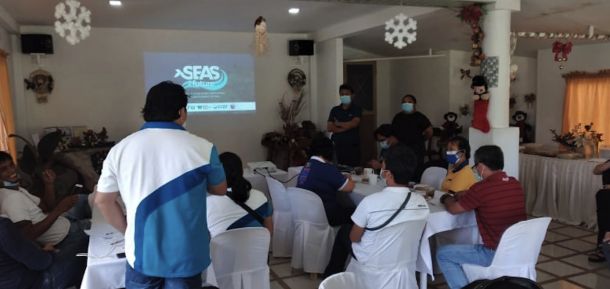
Seas of the Future Project Launch in Siquijor Province. Photo credit: ©KPGatus.
Every time I see fishers on the Island launch their boat from the shore and sail gently into the shallow areas every fine afternoon, I can’t help but well up and remember how my grandfather would do the same with his friends. Could their catch include tabugok? I hope so. But really, partnering with fishing communities and stakeholders means staying true to program commitments.
To be able to facilitate once more honest conversations, create accountability, and inspire action among stakeholders so they can take ownership of their futures. Well, that’s what my Tatay Kadong did to me.
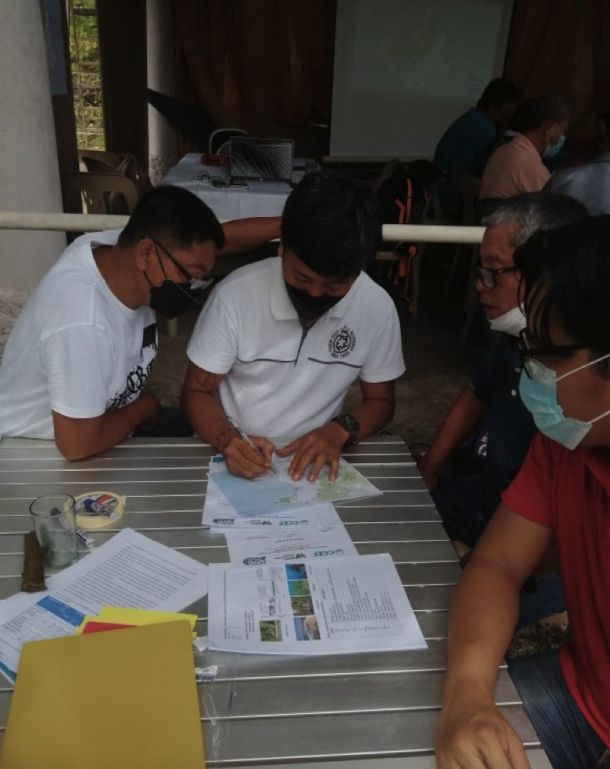
Mapping coastal resources in Siquijor Province. Photo credit: ©KPGatus.
